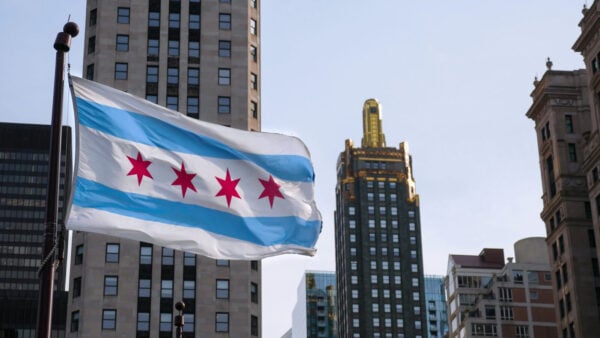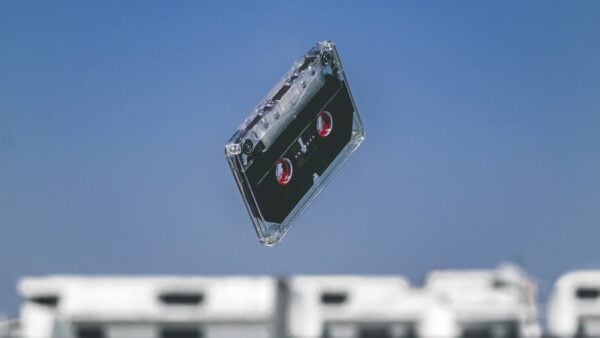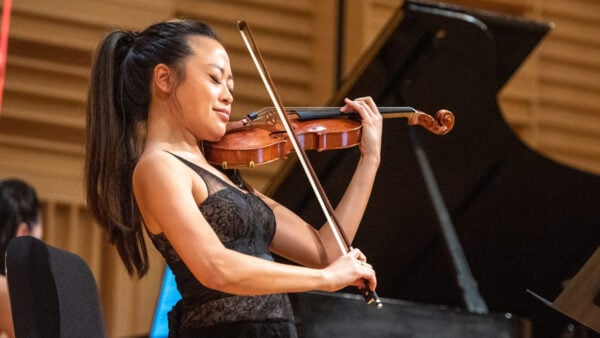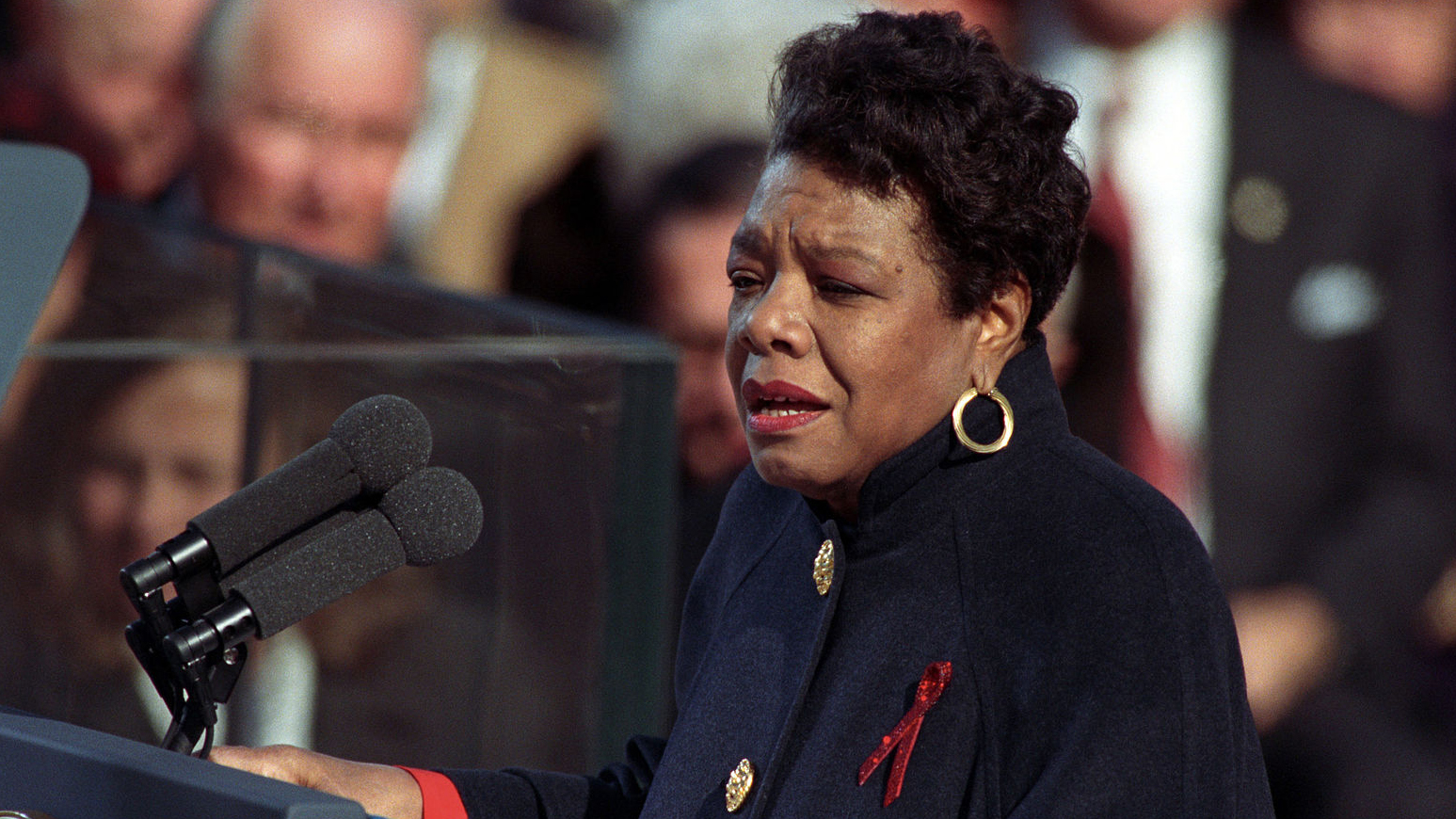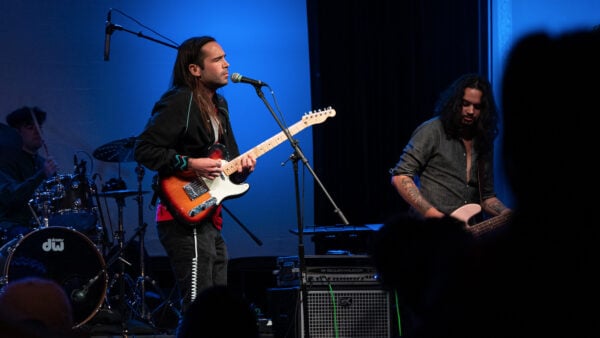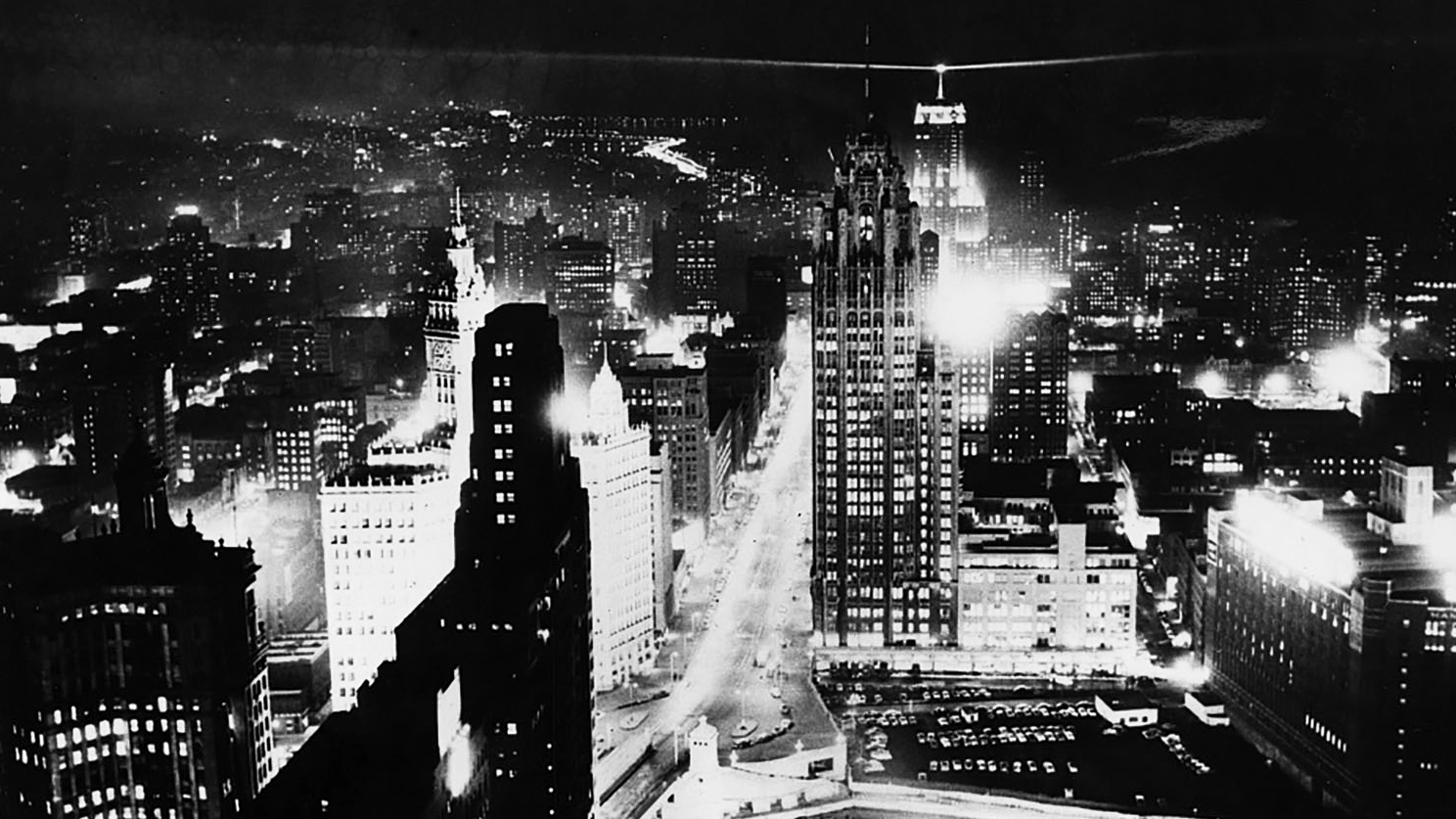 Chicago is world famous for its architectural gems, dramatic skyline, gorgeous lakefront, and distinctive neighborhoods. Alongside the stunning views, the city also has a sound that’s all its own. The vocal ensemble Chicago a cappella opens its 25th anniversary season with "Chicago, Chicago," an exploration of the Windy City's history in song from its beginnings to the present day, showcasing the city’s unique voice.
Chicago is world famous for its architectural gems, dramatic skyline, gorgeous lakefront, and distinctive neighborhoods. Alongside the stunning views, the city also has a sound that’s all its own. The vocal ensemble Chicago a cappella opens its 25th anniversary season with "Chicago, Chicago," an exploration of the Windy City's history in song from its beginnings to the present day, showcasing the city’s unique voice.
The program will include vivid projected imagery illustrating Chicago’s past to enhance the music. The group has also enlisted WTTW’s Geoffrey Baer, expert on all things Chicago, to provide narration. He’s been producing popular TV shows for more than 20 years and is excited to use music as “a different lens into Chicago history that I’ve never explored before. I always like seeing things through new eyes, especially something I’ve been working with for so long.”
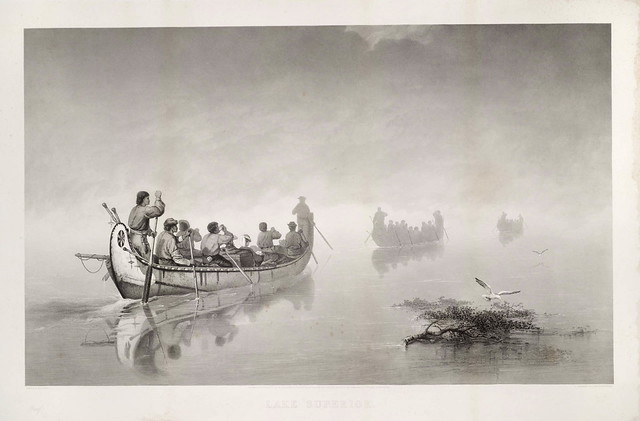
Charles Mottram. Canoes in a Fog, Lake Superior, after Frances Anne Hopkins, 1869. 1873 (From the Special Collections of the Toronto Public Library, CC BY-SA 2.0)
The wide-ranging program will include songs about the early explorers and pioneers, immigrants who have shaped the city, the World’s Columbian Exposition, the Great Migration, the birth of blues and gospel, and more. Chicago a cappella’s Artistic Director Jonathan Miller observed, “Geoffrey and I think in similar ways, in that often with our programs we do a deep dive into a particular aspect of history. That’s really the way he works as well.”
The program opens with “C’est l’aviron,” a song from the time of the voyageurs, the French Canadian fur traders who traveled down to the Midwest. Baer explained, “The fur trade was the biggest industry in the 1600s and 1700s. These voyageurs would paddle canoes the size of tractor-trailers, and sometimes they would have to portage them across miles of ground.”
Miller has also chosen a song about a town in the southern part of Illinois that famously missed an opportunity to play a part in the birth of Chicago: “The Shawneetown bank was a financial institution that was approached when people were talking about raising municipal bonds to build a new city. The bank officials thought the idea would never fly because there was no navigable river, so they took a pass on founding this place called Chicago.”
Several selections highlight the city’s Irish, German, Mexican and Polish immigrants, just a few of the many groups who came here in search of work and a better life. Baer said the Irish immigrants began to arrive following the Great Potato Famine: “They lived in shanty towns along the smelly, sewage-filled Chicago river, doing backbreaking labor digging the (Illinois and Michigan) canal.”
“City of Chicago” is a recent song by Barry Moore about Irish immigrants coming to Chicago and what they endured, both on the journey and when they got here.
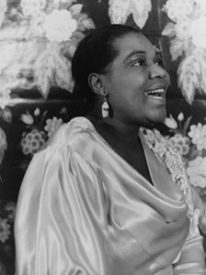
Bessie Smith
African Americans came through Chicago via the Underground Railroad and later settled here during the Great Migration from the South. And they brought music with them — the blues. Songs that traditionally had been performed on acoustic instruments on front porches moved into clubs and bars and were electrified. According to Baer, “One reason that’s given is that the city is loud, particularly the clatter of the “L” trains. So musicians would get these cheap speakers and amplifiers and the sound was quite distorted. You get this different sound that becomes known as the Chicago blues.”
Chicago a cappella will perform a song written by Chicagoan Lovie Austin and made popular by Bessie Smith. It’s the lament of a woman left behind in Mississippi.
Chicago is the birthplace of another great musical tradition. Thomas A. Dorsey came to the city from Georgia with a background in jazz and blues. He combined those styles with religious lyrics and fervor and created gospel. Miller said Chicago a cappella is “really going to the source and doing the very first piece that anyone really identifies as gospel, which is ‘Precious Lord, Take My Hand’ by Dorsey. He wrote that in 1937 for the National Baptist Convention. That was when the musical genre we now call gospel got its start.”
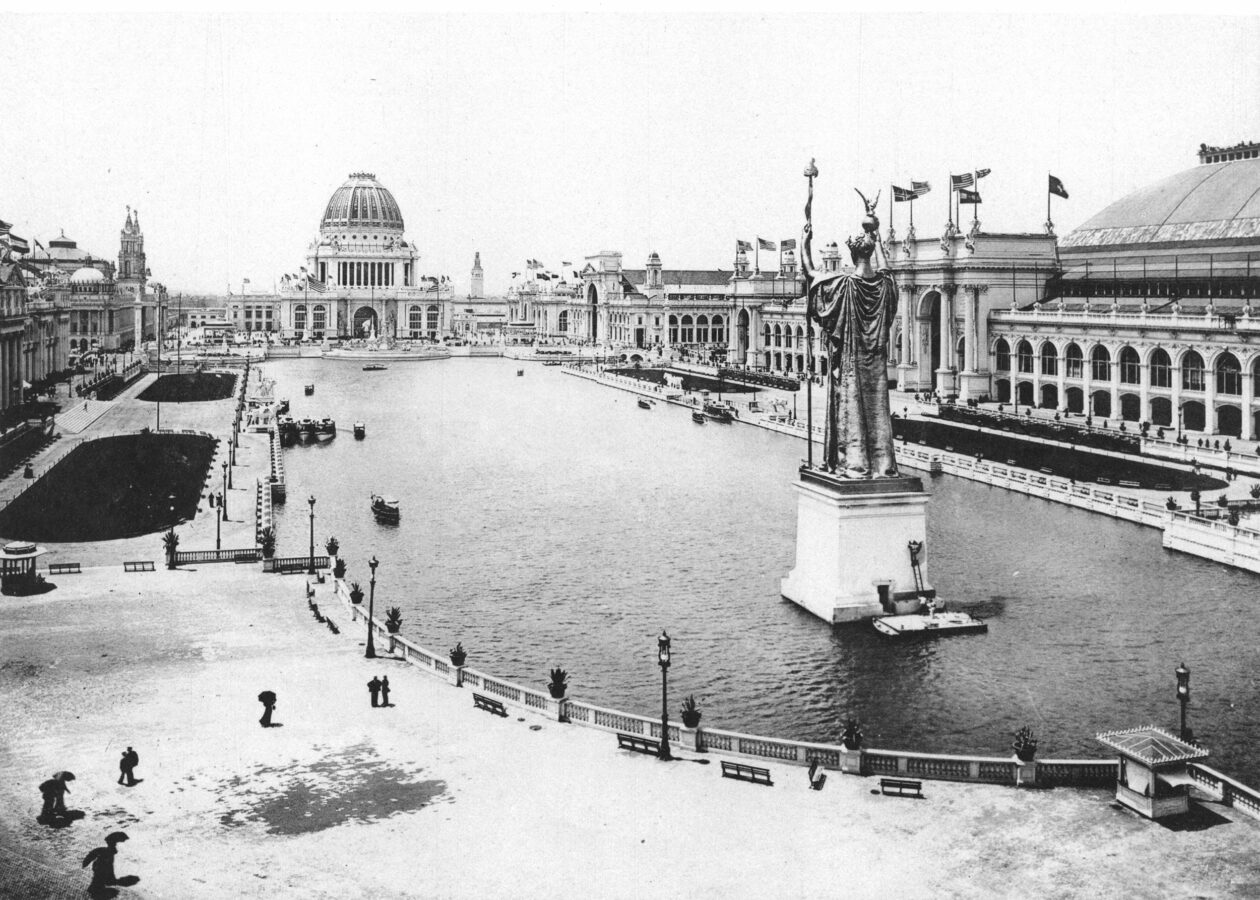 Chicago a cappella’s program also marks the 150th anniversary of a defining moment in Chicago history — the 1893 World’s Columbian Exposition, which transformed the city and influenced its development for decades. As Chicago emerged into greatness, Katharine Lee Bates and Samuel A. Ward immortalized the city in their enduring patriotic anthem “America the Beautiful.” The verse about "alabaster cities' gleam" refers to the Exposition’s massive, neoclassical buildings known as the White City.
Chicago a cappella’s program also marks the 150th anniversary of a defining moment in Chicago history — the 1893 World’s Columbian Exposition, which transformed the city and influenced its development for decades. As Chicago emerged into greatness, Katharine Lee Bates and Samuel A. Ward immortalized the city in their enduring patriotic anthem “America the Beautiful.” The verse about "alabaster cities' gleam" refers to the Exposition’s massive, neoclassical buildings known as the White City.
Those are just a few of the many stops along Chicago a cappella’s journey through our city’s diverse musical heritage. Miller said that the program has been years in the making: “When you’ve lived in Chicago as long as I have, these are tunes you encounter and you sort of file them away in your memory bank. You never know when you’re going to have an opportunity to use them.”
The songs come from many different backgrounds and sources, and they all tell the rich, complex story of how Chicago was born and became one of our country’s great cities. For Baer, the sounds of Chicago have a distinctive flavor: “Chicago is always talked about as a city of neighborhoods, a melting pot. But capturing Chicago’s music is really only possible if it’s a stew, where all the different elements remain intact and you taste the various bits and pieces. At the end of the program, we say what kind of sums up the city is the song ‘Sweet Home Chicago’ — rough around the edges, straight forward, no nonsense. The net effect of the musical stew gives you that feeling, but any one piece of it probably doesn’t give you a whole feeling of Chicago.”
Chicago, Chicago with Geoffrey Baer
Saturday, October 6, 2018, 8:00 pm, Stage of the Pritzker Pavilion, Chicago
Sunday, October 7, 2018, 4:00 pm, Pilgrim Congregational Church, Oak Park
Saturday, October 20, 2018, 8:00 pm, Nichols Concert Hall, Evanston
Sunday, October 21, 2018, 4:00 pm, Wentz Concert Hall, Naperville
Tickets: (773) 281-7820 or online.

